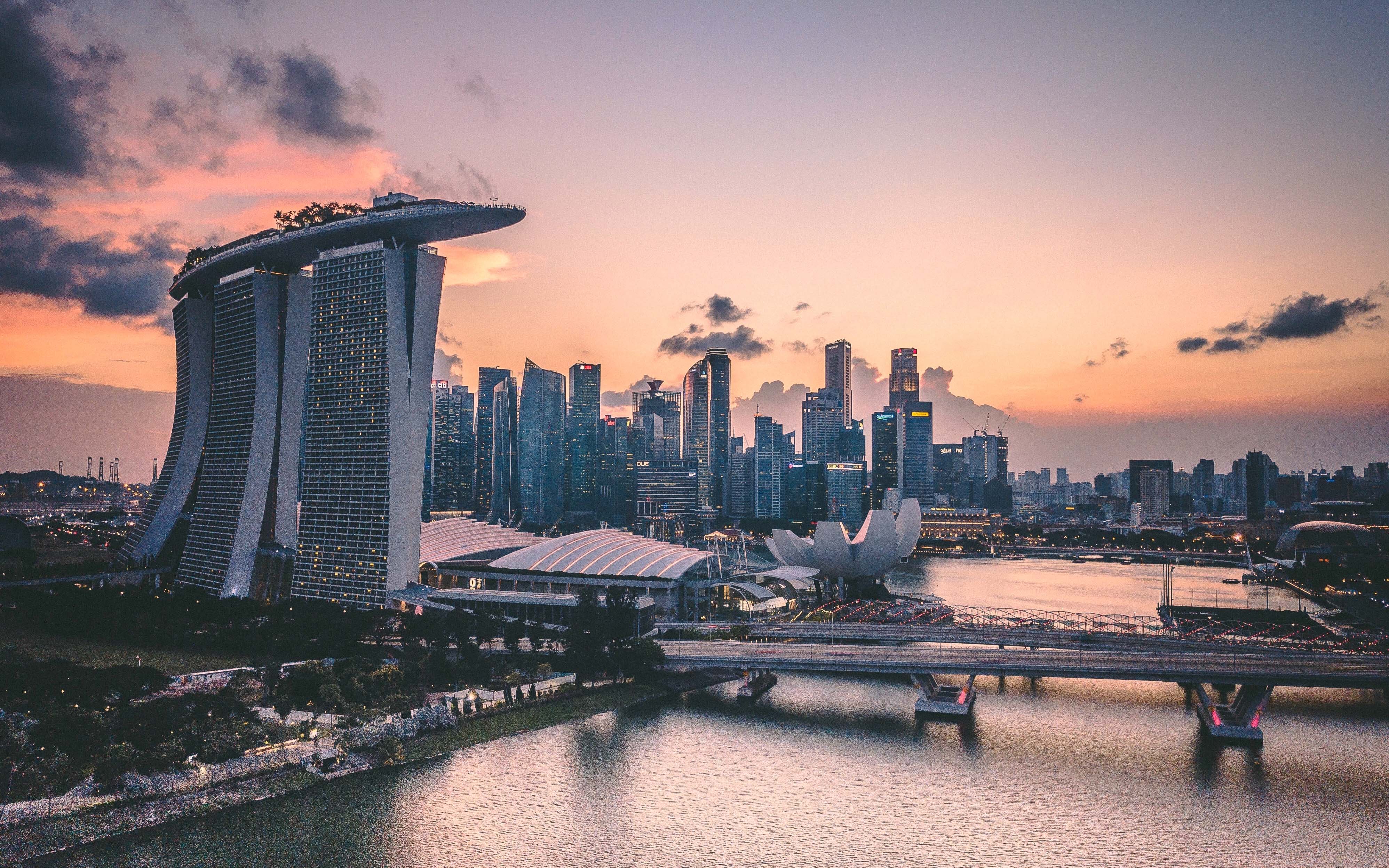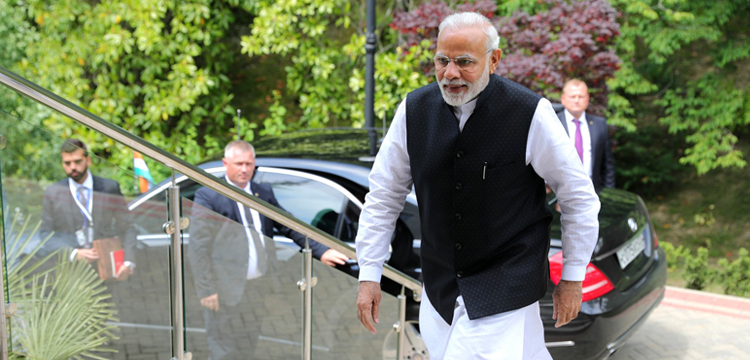The geopolitical chessboard in Asia is where some of the most powerful global players are moving their pieces in the 21st century. While US President Donald Trump, North Korean leader Kim Jong-Un and Chinese President Xi Jinping have dominated headlines, they are not the only political figures making important plays in the region that will have clear ramifications for international business and the national interest of Asian countries, including Singapore.
Singapore as the capital of Asia?

Global strategist Parag Khanna, best-selling author of The Future is Asian, says: “Asia is more a sponge than a bloc.” His goal is to get the Western layman to understand that Asia is more than just China.
“There are 3.5 billion Asians who are not Chinese. It’s something people west of Abu Dhabi don’t understand.”
For the last six years Khanna has been based in Singapore, which he has dubbed the capital of Asia, not to be ingratiating, he says, but more because it reflects reality.
"It’s Chinese without being China. It has a solid track record of diplomatic neutrality, or rather what I call multi-alignment. It goes out of its way to build very strong ties in every direction. Being a major financial centre is critical. Most of the foreign direct investment that flows through the region flows through Singapore,” he explains. “Singapore is a role model in terms of its modernisation effect.
Brexit and Asia

On the other hand, global shifts in power such as Brexit invites puzzlement bordering on incomprehension from an Asian viewpoint. Britain's colonial heritage left a mixed legacy in the region, but until recently the country was still admired for its competent government and economic prowess.
Little of that will survive if Britain leaves the EU without an agreement governing its departure or its future relations with the bloc.
Brexit provides obvious warnings beyond the spectacle of a once-respected power unable to govern itself. The folly of allowing referendums is one, an observation made privately by non-plussed Singaporean diplomats in the aftermath of the original vote. For more doctrinaire critics of the west, Brexit also serves to illustrate the weakness of liberal systems of government.
Much like the ongoing U.S.-China trade war, Brexit is another example of what de-globalisation looks like -- namely the messy unpicking of decades of economic coming together in the face of popular anger.
Brexit ultimately shows the importance of understanding that politics will trump economics in the end.
European Singapore Trade

In the shade of Brexit, the European Union-Singapore Free Trade Agreement (EUSFTA) allows 84% of Singapore exports to enter the EU market duty-free and eliminates the remaining tariffs between the third and fifth year of the agreement.
As far as trade agreements are concerned, the EUSFTA is a big one for Singapore.
The EU is the world’s largest single market and represents Singapore’s third largest trading partner. On the other hand, Singapore is the EU’s biggest trading partner in ASEAN with total bilateral trade standing at € 53 billion (S$ 81 billion) in 2018. Singapore also hosts more than 10,000 EU companies, some of which function as forward bases set for regional operations.
With the EUSFTA in place, economic benefits generated by the agreement will be profound for Singapore. A report by the Singapore Ministry of Trade and Industry (MTI) estimates that total trade will likely grow by 1.1 per cent, which would translate into 0.27 per cent increase in total gross domestic product or GDP.
Besides, lower tariff barriers would make Singapore exports more competitive in EU markets. Singapore Business Federation chief executive officer Ho Meng Kit calls the agreement a “timely development” and posits that the successful implementation of the EUSFTA would generate new economic opportunities to local companies, especially small and medium enterprises (SMEs).
A waning US influence and rising Asian players

While the US remains the dominant superpower in Asia, it is fast losing ground to China, as the impact from the escalating trade tensions takes a toll on Washington’s economic and diplomatic clout in the region.
And the rise of protectionism and the current “America First” foreign policy under president Donald Trump “may be accelerating this trend,” warned Hervé Lemahieu, lead author of the latest edition of the Asia Power Index. “The Trump administration’s focus on trade wars and balancing trade flows one country at a time has done little to improve the glaring weakness of US influence, its economic relationships.”
Describing the US as being in "relative decline", Lemahieu, who is also the Director of the Asian Power and Diplomacy Program at the Lowy Institute, added that “short of war, the US is unlikely to halt the narrowing power differential between itself and China”.
The US once again took the top spot with a score of 84.5 out of 100, but it was China that saw the most improvement, jumping to 75.9 this year. The US had a 10-point lead over China in 2018, but that gap has narrowed to 8.6 points in 2019.
China has also intensified its diplomatic efforts and bilateral cooperation with Myanmar and despite scepticism from political analysts, Myanmar plays an important role in Beijing’s foreign and security policies.
Beyond the two big players, Japan and India are the next countries to exert significant influence in the area. Described as the “leader of the liberal order in Asia” Japan is beginning to rival China for infrastructure investment in South and Southeast Asia, offering an alternative to the Belt and Road initiative.
Meanwhile, India is expected to be the fastest-growing economy in the region, reaching parity with the US by 2030. It isn’t expected this will lead to greater influence though as the country lags behind in defence networks and economic relationships.
And despite being a significantly smaller economy, North Korea has dramatically increased its influence. This largely due to its diplomacy summits with the US - held on equal footing.
India’s Expected Growth

The other emerging Asian giant, of course, is India.
To leave behind its reputation for questionable political and economic governance India needs better quality regulatory institutions, an area where Indian Prime Minister Nahendra Modi's record has been weak.
Modi's administration too often now appears willing to use anti-corruption investigations as a tool of political intimidation. Even supposed successes, such as new bankruptcy rules designed to recover funds from collapsed businesses, show signs of running into the sand.
Any number of reforms could help, from investment in courts and regulators to handing more autonomy to the police and reducing the kind of onerous red tape that allows graft to thrive. This is still a country where cases languish before the courts for decades.
Tensions on both sides of the Korean Peninsula

Korea’s political landscape continues to be dominated by simmering tensions across the Peninsula.
With its huge military and nuclear weapons programme, closed society, and close — albeit increasingly fraught — relationship with its neighbour China — North Korea has been a source of consternation for many US Presidents over the years. But the jury is still out on whether self-proclaimed ‘deal maker’ US President Donald Trump has been able to make a difference.
Assistant Professor Yongwook Ryu from the Lee Kuan Yew School of Public Policy thinks North Korea’s nuclear programme remains the key issue.
“North Korea actually wants to keep a few nukes. It certainly does not want to give up all or eliminate its entire (stock of) nuclear weapons.”
According to Dr Ryu, Kim Jong-Un is, “much more serious than his father,” when it comes to economic reform and development.
Meanwhile, the deterioration of the Japan-South Korea bilateral relationship has been an ongoing talking point, with South Korea’s Supreme Court ordering Japanese companies to compensate Koreans forced to work at factories and mines during the colonial rule of the Korean Peninsula by Japan.
This is problematic as the 1965 compensation treaty the Supreme Court has invalidated serves as the legal basis for the bilateral ties between the two countries.
In response to the Supreme Court ruling Japan has removed South Korea’s favoured trade partner status meaning goods can no longer be fast tracked into the Japanese market. The move will also affect Japanese exports to South Korea, causing economic pain for both sides.
South Korea is set to enforce a similar downgrade while on the consumer level, Japanese beer goes unsold and Korean shoppers boycott Uniqlo stores. If the stand-off cannot be resolved quickly it’s expected global supply chains will be disrupted.
Erosion of Hong Kong’s Financial Influence

Meanwhile, fear of China’s growing influence in Hong Kong has plunged the city into months of ongoing protests. On the financial front, the unrest in Hong Kong has sent stocks reeling and some investors are rethinking their asset allocations. But an exodus to other cities like Singapore is not a given, and the city state may not welcome one anyway.
The main worry is the erosion of the “one country, two systems” policy formulated by China during the handover of Hong Kong in 1997, when it vowed to let the territory operate as a special autonomous region for 50 years.
Conclusion
It’s clear the Asian region plays a major role in the current international politics situation. More than just China events that occur in all parts of the region have effects across the globe. While China and India might be the big economic players, smaller countries like North Korea know how to make the West take notice. The region’s influence will only grow.
If you’re interested in reading such content, subscribe here.